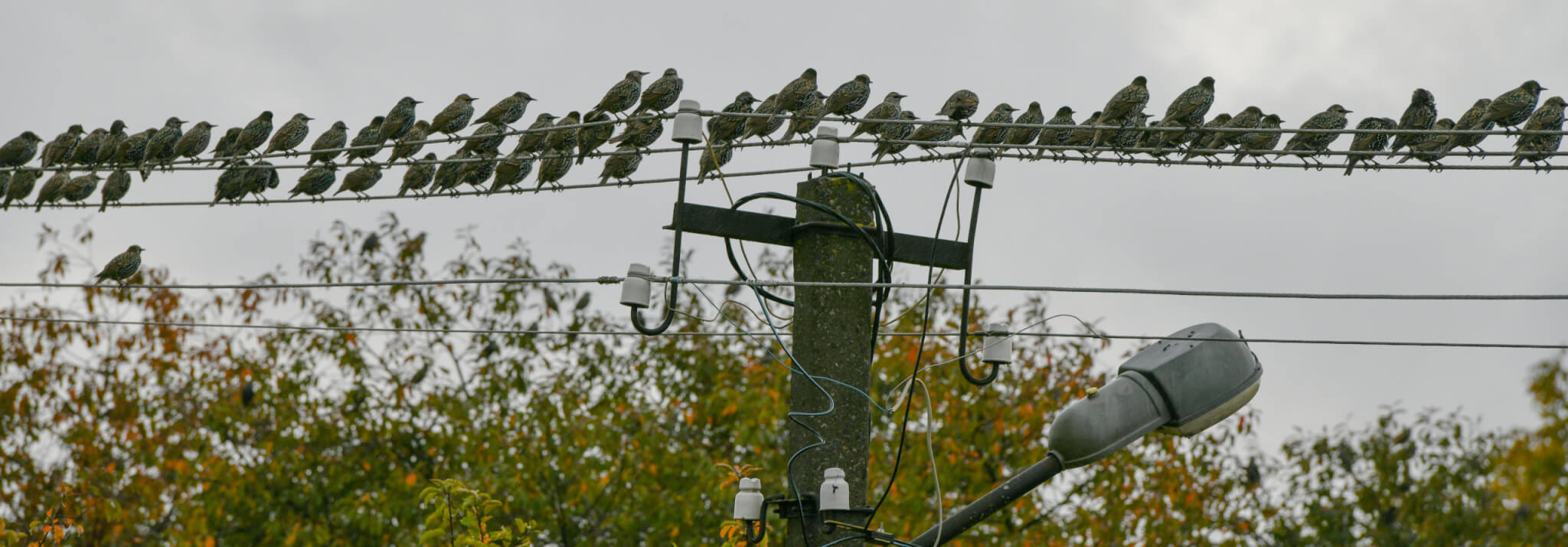Wildlife & forestry student branches out
R
achel Brummet’s passion for forestry and wildlife led her to Alaskan islands, wildfires in Montana, city streets where she used pyrotechnics to help people and wildlife coexist, and, of course, to Purdue’s forestry and natural resources department.
And it all began with a discussion about blueberries.
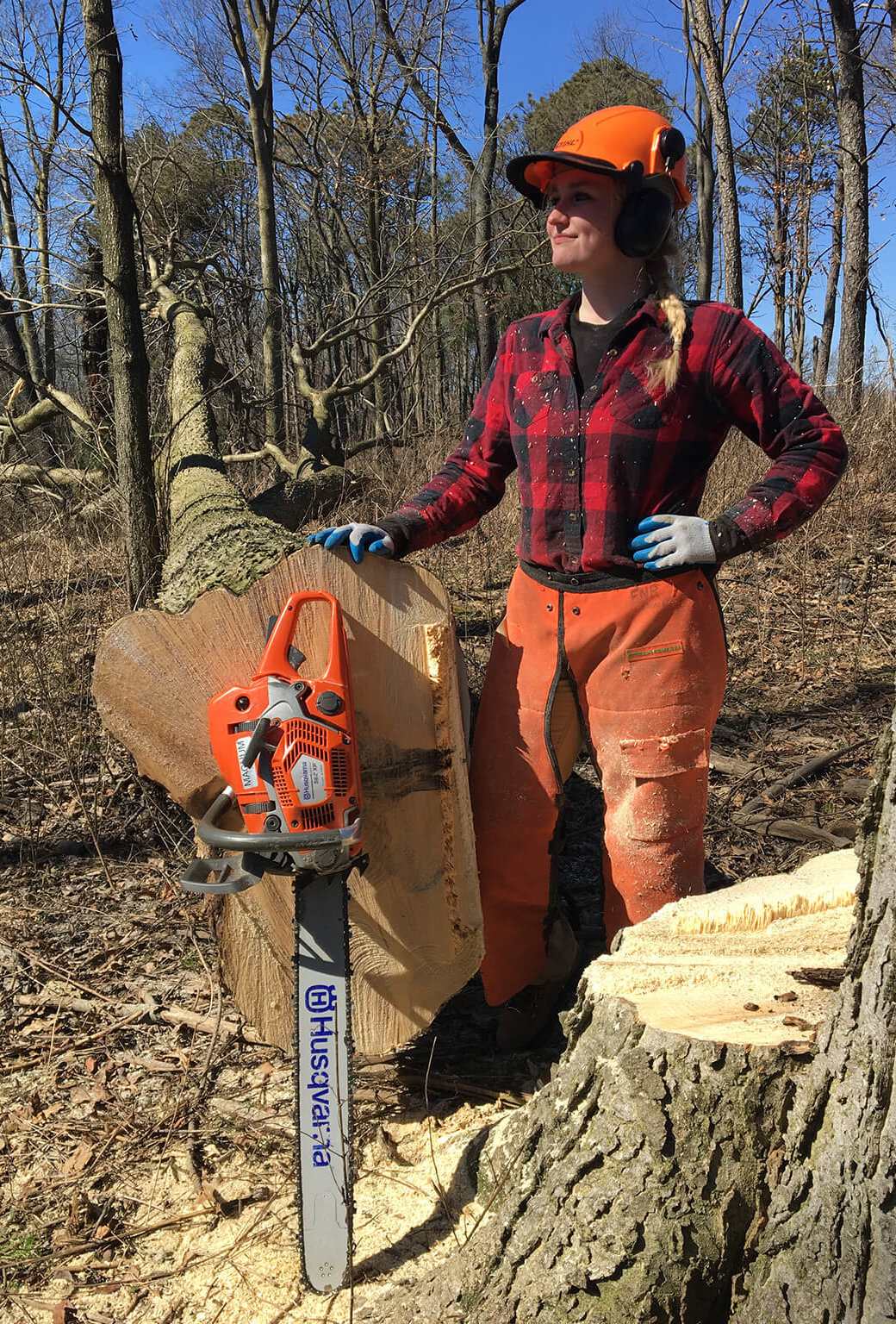
“In high school, I worked at a farmers market, selling blueberries from my family’s orchard,” recalled Brummet. “I was down to my last quart of the day, just about to pack up when I met Elizabeth Flaherty.”
Flaherty told Brummet the blueberries she was buying reminded her of wild blueberries she picked when researching flying squirrels in Alaska.
“I couldn’t believe my luck,” said Brummet. “I had just finished 'Arctic Dreams' by Barry Lopez and was obsessed with Alaska at the time.”
Brummet told Flaherty how she one day hoped to study wildlife at Purdue. Flaherty, now an associate professor of wildlife ecology and habitat management, told Brummet she was a Purdue professor and offered her a business card.
Once classes resumed, Brummet contacted Flaherty and accepted the invitation to sit in on occasional labs and lectures. After class at West Lafayette High School, Brummet would walk 25 minutes to campus.
“As soon as I started observing classes at Purdue, I knew I wanted to be a part of it. The way Dr. Flaherty taught was very hands-on and the classmates were always happy to be there.”
After graduating as her high school’s valedictorian, Brummet spent the summer in Alaska, working as a Youth Conservation Corps Crew member with the U.S. Forest Service, coincidentally staying in the same bunkhouse Flaherty had years before.
“There were, in fact, wild blueberries everywhere,” Brummet noted.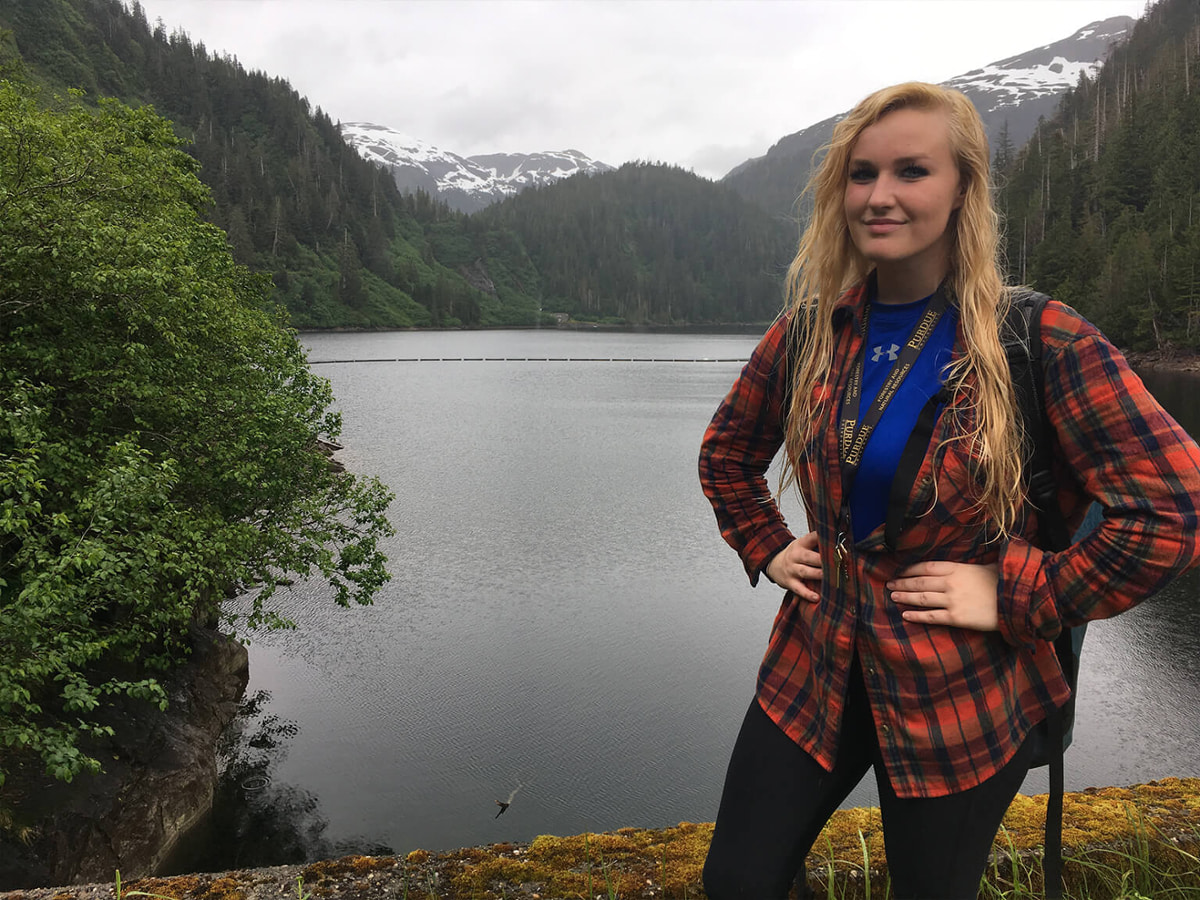
The experience involved an intense regime of trail maintenance and camping, ultimately preparing Brummet well for the rigors of research and field work she would experience as a student at Purdue.
“It is extremely rare to have a student gain professional experience the summer before their freshman year,” said Flaherty. “Rachel’s motivation and engagement in her education and professional experience suggests she will be very successful in her future career.”
Brummet is pursuing a double major in wildlife & forestry. “People advised me that double majoring is a good idea for job options, but my real reason is that I couldn’t pick just one. Both are important for what I want to do and I don’t want to keep myself from useful knowledge.”
Following her freshman year, Brummet worked as a wildland firefighter in Montana. The next summer, she attended a month-long FNR Summer Practicum in Michigan’s Upper Peninsula. Still eager to gain experience, she worked with the U.S. Forest Service in Idaho for the summer’s second half.
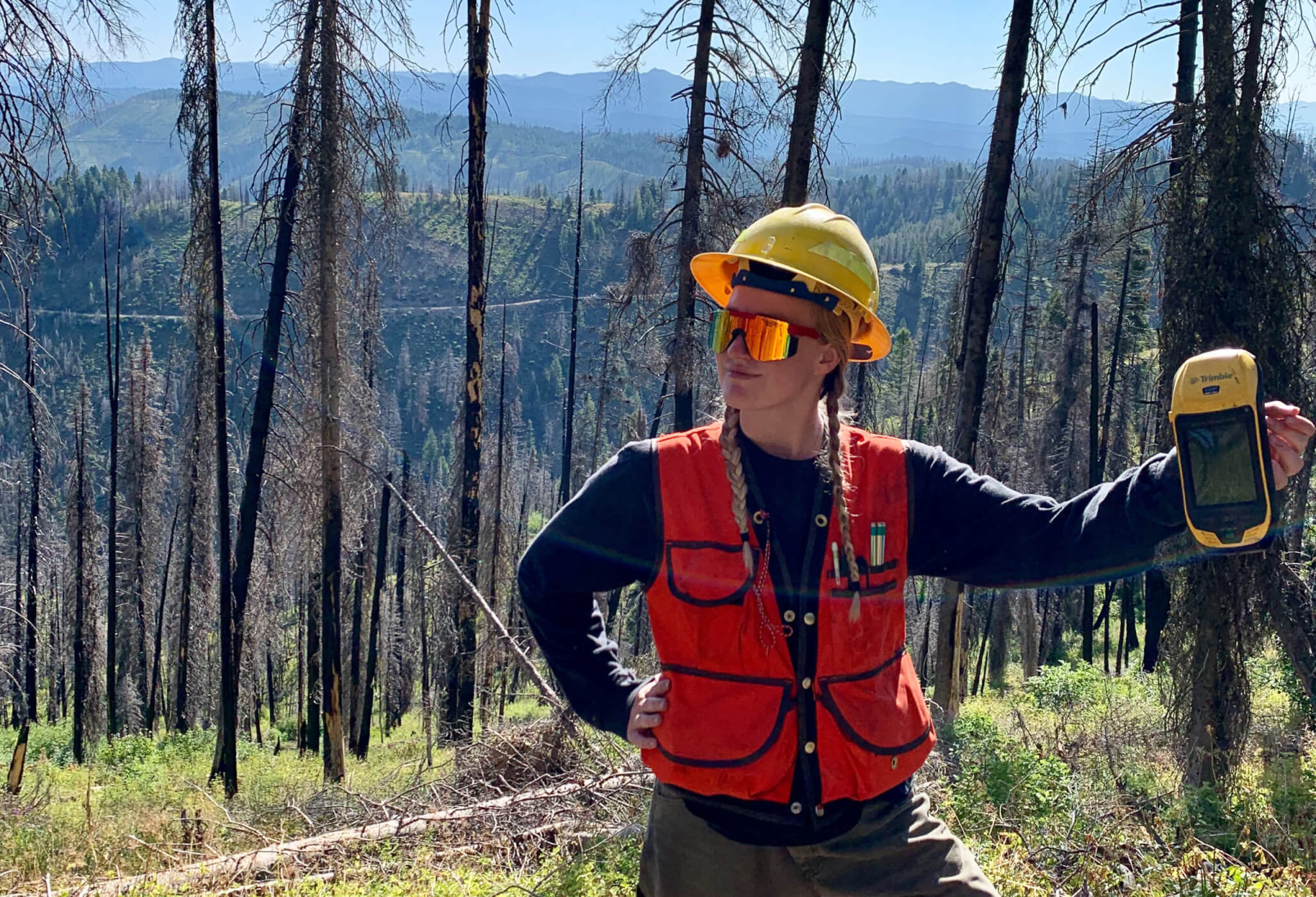
Brummet said she likes to make the most of any time she has available, whether it be half a summer or half a day, as evidenced by her job after class with USDA APHIS Wildlife Services.
“I’m a member of the pest bird task force. Our mission is to help people and wildlife coexist. In the evenings that I’m available, we drive to downtown Indianapolis and deter birds like starlings, crows and pigeons from designated areas.”
Brummet’s team utilizes a variety tools to startle birds, including pyrotechnics, lasers, clapboards and distress calls.
“Starlings come in the thousands and like to gather at electrical substations where they could potentially cause power outages. They can also create problems for airports and residential areas.”
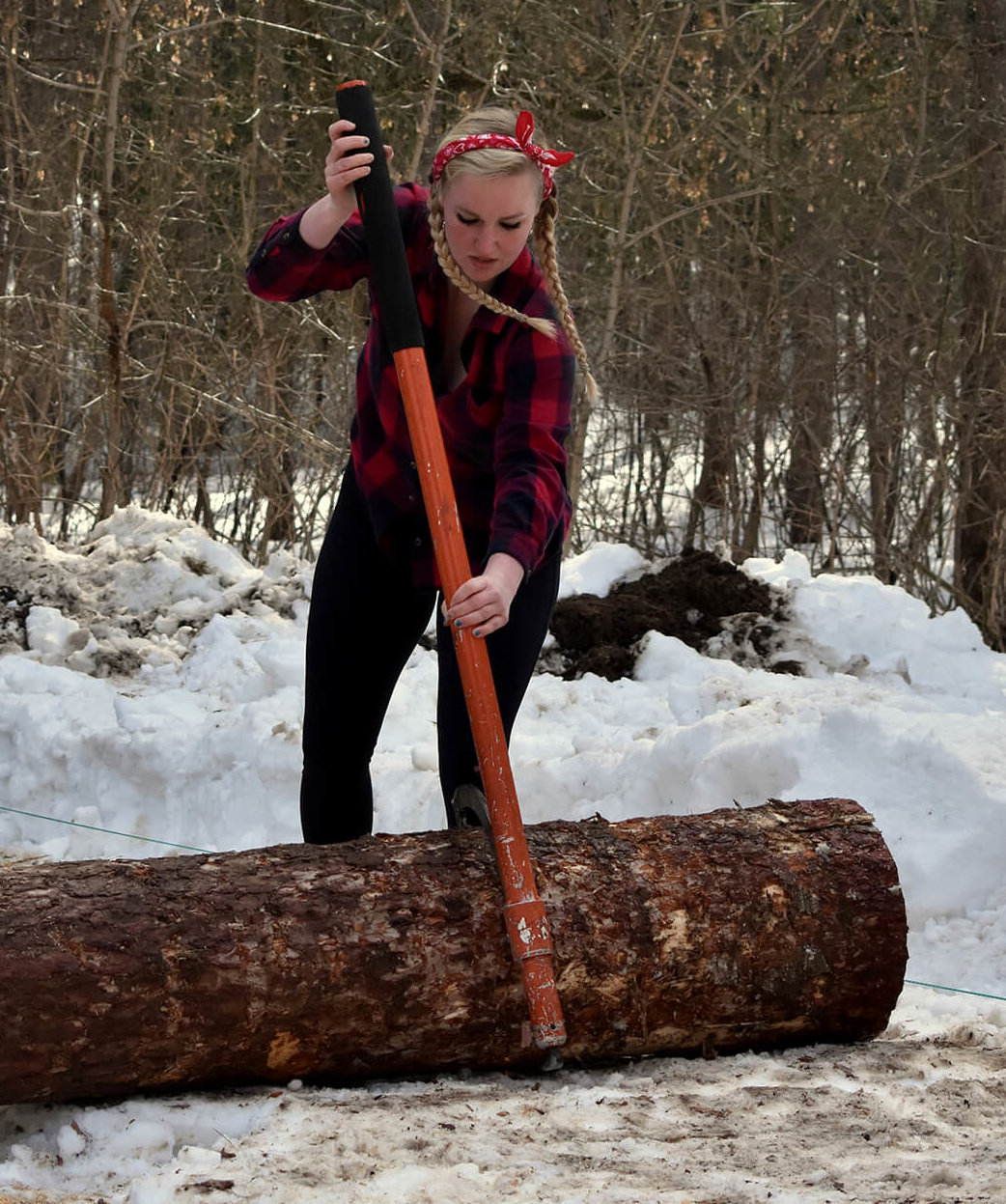
Brummet is also an active member of the Society of American Foresters, The Wildlife Society and the lab lead for Purdue’s FNR Specimen Collection taxidermy lab.
“When I make decisions about how to budget my time – which club events I want to attend, how many hours I am available to work, or how many evenings I should devote to schoolwork – I always step back and take a look at the bigger picture. When I graduate from Purdue next summer, I want to be employable and well-prepared to work full time in my field. To create and keep balance in my life, my biggest consideration is that end goal.”
“For me, college is not a time to go with the flow; it is a time to act decisively, find my specific interests, discover opportunities and open doors for my future. Setting an end goal has allowed me to really maximize my time here at Purdue by seeking new experiences and developing myself as much I can in my field of study.”

